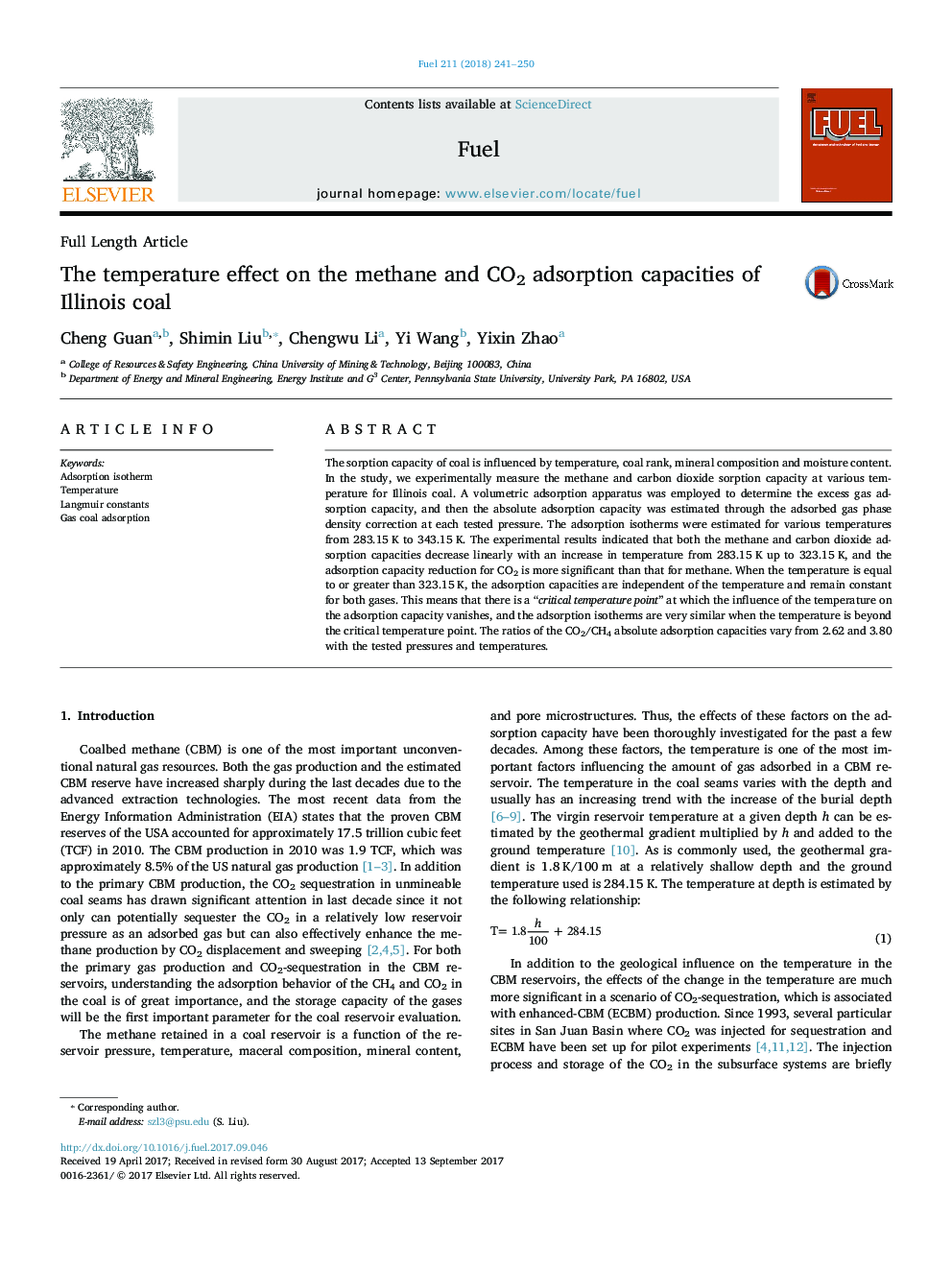| Article ID | Journal | Published Year | Pages | File Type |
|---|---|---|---|---|
| 6473445 | Fuel | 2018 | 10 Pages |
The sorption capacity of coal is influenced by temperature, coal rank, mineral composition and moisture content. In the study, we experimentally measure the methane and carbon dioxide sorption capacity at various temperature for Illinois coal. A volumetric adsorption apparatus was employed to determine the excess gas adsorption capacity, and then the absolute adsorption capacity was estimated through the adsorbed gas phase density correction at each tested pressure. The adsorption isotherms were estimated for various temperatures from 283.15Â K to 343.15Â K. The experimental results indicated that both the methane and carbon dioxide adsorption capacities decrease linearly with an increase in temperature from 283.15Â K up to 323.15Â K, and the adsorption capacity reduction for CO2 is more significant than that for methane. When the temperature is equal to or greater than 323.15Â K, the adsorption capacities are independent of the temperature and remain constant for both gases. This means that there is a “critical temperature point” at which the influence of the temperature on the adsorption capacity vanishes, and the adsorption isotherms are very similar when the temperature is beyond the critical temperature point. The ratios of the CO2/CH4 absolute adsorption capacities vary from 2.62 and 3.80 with the tested pressures and temperatures.
